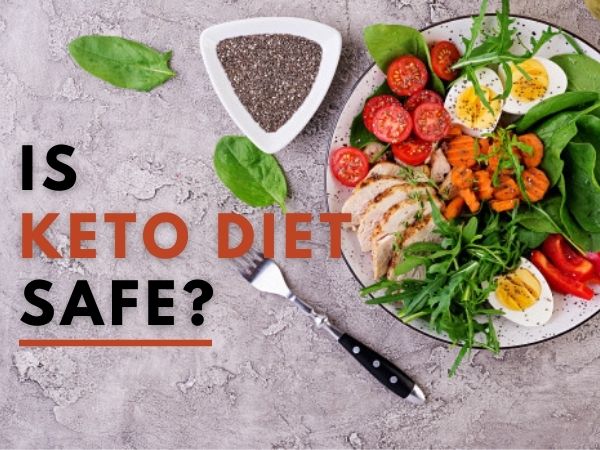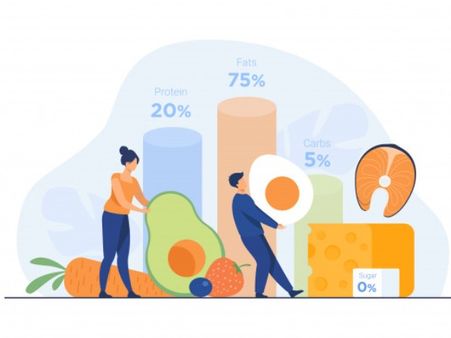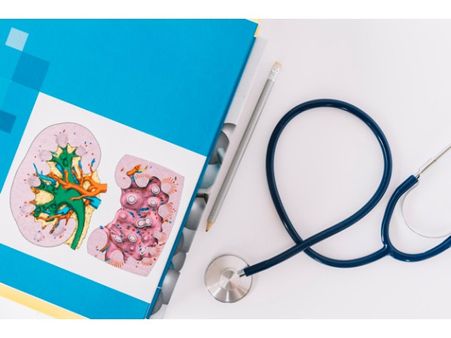Just In
- 3 hrs ago

- 8 hrs ago

- 13 hrs ago

- 18 hrs ago

Don't Miss
- Finance
 Trade Setup: Nifty Bounces Back From Friday Lows As Geopolitical Tensions Ease; Focus On Q4 Earnings
Trade Setup: Nifty Bounces Back From Friday Lows As Geopolitical Tensions Ease; Focus On Q4 Earnings - News
 Karnataka Lok Sabha Elections 2024: Priyanka Gandhi, Amit Shah To Woo Voters Of Bengaluru South Today
Karnataka Lok Sabha Elections 2024: Priyanka Gandhi, Amit Shah To Woo Voters Of Bengaluru South Today - Movies
 Aadujeevitham Box Office Collection Day 27 Prediction: Prithviraj's Movie Showing A Decline In Earnings
Aadujeevitham Box Office Collection Day 27 Prediction: Prithviraj's Movie Showing A Decline In Earnings - Technology
 OnePlus Watch 2 Review: A Near-Perfect Second Attempt! But Can it Take on the Galaxy Watch 6?
OnePlus Watch 2 Review: A Near-Perfect Second Attempt! But Can it Take on the Galaxy Watch 6? - Automobiles
 Volkswagen Virtus Marks Sales Increase In India, Becomes Top 5 Best-Selling Sedan
Volkswagen Virtus Marks Sales Increase In India, Becomes Top 5 Best-Selling Sedan - Sports
 CSK vs LGS IPL 2024 Match 39: Will Mayank Yadav Return To Lucknow Super Giants Line Up?
CSK vs LGS IPL 2024 Match 39: Will Mayank Yadav Return To Lucknow Super Giants Line Up? - Education
 Ratan Tata's Social Endeavors Recognized With KISS Humanitarian Award
Ratan Tata's Social Endeavors Recognized With KISS Humanitarian Award - Travel
Kurnool's Hidden Gems: A Guide To Exploring India's Lesser-Known Treasures
Is Keto Diet Safe? Side Effects Of The Ketogenic Diet And Who Should Avoid It
Bollywood Actress Mishti Mukherjee passed away on the night of 2 October. As per reports, the actress was suffering from kidney disease, which resulted in her untimely death. The official statement of the actress' death stated, "Actress Mishti Mukherjee who marked her brilliance in many films and music videos with her ace acting is no more. Due to the keto diet, her kidney failed in Bangalore, and she breathed her last on Friday night, the actress suffered a lot of pain" [1].

In the event of the disheartening news, there has been an elevated level of examination on the keto or the ketogenic diet. So how did the keto diet cause kidney failure? Read on to know about the keto diet and the possible complications it can trigger in an individual, and the factors one has to look before adopting diet plans.

What Is Keto Diet?
The ketogenic diet (or keto diet, for short) is a low-carb, high-fat diet which can help improve one's health [2]. Ketogenic diets, studies assert, have benefits against diabetes, cancer, epilepsy and Alzheimer's disease [3]. Keto diet involves drastically reducing carbohydrate intake and replacing it with fat, which puts your body into a metabolic state called ketosis.
When ketosis happens, your body becomes incredibly efficient at burning fat for energy. It also turns fat into ketones in the liver, which can supply energy for the brain [4]. Along with that, it can result in high reductions in blood sugar and insulin levels. There are different versions of the keto diet, such as [5];
•
Standard
ketogenic
diet
(SKD),
a
very
low-carb,
moderate-protein
and
high-fat
diet.
•
Cyclical
ketogenic
diet
(CKD)
involves
periods
of
higher-carb
refeeds,
such
as
5
ketogenic
days
followed
by
2
high-carb
days.
•
Targeted
ketogenic
diet
(TKD)
allows
you
to
add
carbs
around
workouts.
•
High-protein
ketogenic
diet,
similar
to
a
standard
ketogenic
diet,
includes
more
protein.


How Does Keto Diet Work?
The keto diet forces your body into using a different type of fuel, that is, instead of relying on sugar (glucose) that comes from carbohydrates (such as legumes, vegetables, and fruits), the keto diet relies on ketone bodies, a type of fuel that is produced by your liver from stored fat [6]. While it has been proven to help with certain medical conditions such as refractory epilepsy and Alzheimer's, several studies have linked the keto diet to adverse effects on the body, especially if followed for a long time [7].

Restricting carbohydrates and increasing fat intake can lead to ketosis, a metabolic state in which your body relies primarily on fat for energy instead of carbohydrates [8]. Usually, as aforementioned, our body uses carbohydrates as the source of energy, which is then converted into energy.
For a person following a keto diet, the consumption of carbohydrates is low, prompting the body to use fat as the source for energy. This can lead to your body using all the fat content, even the small amount stored in the liver, which can soon get depleted of it after a day or two [9]. This, in turn, results in ketosis, where the liver starts making ketone bodies within two to four days when it sees the deficiency of carbohydrates. However, it depends on an individual's body metabolism, and body type, as every person, produces ketones in varying days [10].

Is Keto Diet Safe?
Frankly, it depends on the body and health of the individual adopting, and that can vary from one person to the other. According to a study that explored all the popular diets, the ketogenic diet was listed on Worst Diets for 2020. The study said that, while the keto diet is deemed to be one of the most effective diets to follow, it is restrictive and unsustainable [11]. The low-carb, high-fat diet is adopted by people to lose weight in a short span. The diet requires you to give up grains and starches, fruits, root vegetables and tubers and so on.
The diet causes something called a keto flu that usually subsides with some days' time. Keto flu causes low energy and mental function, increased hunger, sleep issues, nausea, digestive discomfort and decreased exercise performance - all of which can affect your overall health negatively [12].
In addition to this, researchers and nutritionists have pointed out that the ketogenic diet could cause low blood pressure, kidney stones, constipation, nutrient deficiencies and an increased risk of heart disease [13]. There is concrete evidence showing that a ketogenic diet reduces seizures in children, sometimes as effectively as medication, improve blood sugar control and promote weight loss [14].
Consequently, these benefits of the keto diet are not universal and at times, specific to certain health conditions such as infantile spasms, Rett syndrome, tuberous sclerosis complex, Dravet syndrome, Doose syndrome, and GLUT-1 deficiency [15]. So, while the keto diet may result in weight loss and lower blood sugars, it is a quick fix - that is, in most cases, it is not sustainable, and the weight gain may come back, causing you to gain more than what you lost [16][17].

What Are The Side Effects Of Keto Diet?
While the keto diet is known to aid weight loss, there are also certain side effects that one can experience, such as the following:
Persistent fatigue: In the case of the keto diet, the body is not receiving any carbohydrate at all, which is the main source of energy. So, many people start to experience persistent, chronic fatigue, which may come in the way of their daily activities. They may also feel feverish due to chronic fatigue [18].
Higher chances of relapse: The keto diet removes the water weight initially and makes people feel that they have lost actual fat. But this diet can slow down the metabolic rate and make a person gain back weight faster, later on.
Excessive thirst: When the body does not get enough carbohydrates, it works harder internally to produce more energy for activities. When the body is working extra hard, it can cause dehydration and lead to excessive thirst [19].
Constipation: When we are not consuming enough fibre, because we are on the keto diet, it could surely cause constipation and other related ailments like stomach pain [20].
Affects heart health: There are chances that people on the keto diet tend to go overboard with foods containing healthy fats and eat a large amount, just because keto allows them to eat healthy fats. This habit can increase the cholesterol levels in the body and may affect the heart, eventually.

Keto diet and kidney health
While one rule of the keto diet excludes carbohydrates, the other rule is to include high amounts of protein in your diet, as protein helps to cut fat and builds muscles. While this is true, loading your body with too much protein, by consuming large amounts of meat, egg, etc., during every meal can also be unhealthy [21][22].
Excessive proteins consumed can put a strain on your kidneys, as the kidneys have to work harder to process and filter out the protein from your body. Research shows us that when kidneys are healthy, the level of protein in the diet has no impact on kidney function. With healthy kidneys, high protein diets are safe, but for someone with existing kidney problems, the diet can be extremely harmful [23][24].
While a well-formulated low-carb, ketogenic diet in early kidney disease is safe and may even address the underlying issues of type 2 diabetes and high blood pressure, for a person with kidney issues, the extra demand placed on the remaining functional portions of the kidneys actually results in a continued decline in kidney function [25].
Studies also point out that any improvement in advanced kidney disease would be rare even if the underlying cause were improved or reversed. Patients with advanced kidney disease should NOT attempt a low-carb diet without careful supervision.

Who Should Avoid Keto Diet?
While the keto diet has certain health benefits ascertained to it since everyone has a different body metabolism and different reactions to specific diet doses. If anyone of the following applies to you, the keto diet is not for you.
•
Underweight
•
Eating
disorders
•
Children
below
the
age
of
18
[26]
•
Diabetics
on
insulin,
metformin
or
other
medications
•
Pregnant
and
lactating
women
•
People
recovering
from
surgery
[27]
•
Kidney
damage
•
The
risk
for
heart
disease
[28]
•
Type-1
diabetes
•
Pre-existing
liver
or
pancreatic
condition

On A Final Note
Nutritionists point out that no one diet is good for everyone. Make sure to do your research, consult a dietitian, discuss with your doctor to opt the most suitable diet plan that can help improve your health, without any severe side effects.
-
 pregnancy parentingWorld Breastfeeding Week: Is It Safe to Follow the Keto Diet While Breastfeeding? Find Out!
pregnancy parentingWorld Breastfeeding Week: Is It Safe to Follow the Keto Diet While Breastfeeding? Find Out! -
 healthEasy Weight Loss With Lazy Keto: Perfect For Everyone Who Is Lazy But Want To Lose Weight
healthEasy Weight Loss With Lazy Keto: Perfect For Everyone Who Is Lazy But Want To Lose Weight -
 healthWhat Can You Eat On A Vegetarian Keto Diet?
healthWhat Can You Eat On A Vegetarian Keto Diet? -
 healthKeto Diet: How To Drink Coffee For Weight Loss? Is Black Coffee Or Milk Coffee Better?
healthKeto Diet: How To Drink Coffee For Weight Loss? Is Black Coffee Or Milk Coffee Better? -
 healthIs Keto Diet Safe? Potential Risks And List Of People Who Should Avoid It
healthIs Keto Diet Safe? Potential Risks And List Of People Who Should Avoid It -
 diet fitnessWomen’s Day: Keto Diet For Women: Is It Healthy? Can Keto Diet Benefit Cancer Patients?
diet fitnessWomen’s Day: Keto Diet For Women: Is It Healthy? Can Keto Diet Benefit Cancer Patients? -
 wellnessFather’s Day 2021: Benefits And Dietary Guidelines For Men Over 50 On Keto Diet
wellnessFather’s Day 2021: Benefits And Dietary Guidelines For Men Over 50 On Keto Diet -
 wellnessInternational Epilepsy Day: Expert Speaks About Ketogenic Diet For Epilepsy
wellnessInternational Epilepsy Day: Expert Speaks About Ketogenic Diet For Epilepsy -
 wellness12 Tasty And Healthy Keto-Approved Ice Creams
wellness12 Tasty And Healthy Keto-Approved Ice Creams -
 wellnessWhat Is Ketosis And How Does It Work? Benefits, Symptoms And What To Eat
wellnessWhat Is Ketosis And How Does It Work? Benefits, Symptoms And What To Eat -
 diet fitnessThe List Of Best And Worst Diet Plans To Follow In 2020
diet fitnessThe List Of Best And Worst Diet Plans To Follow In 2020 -
 healthThe Ultimate 10 Day Keto Diet Plan: Can It Aid Weight Loss?
healthThe Ultimate 10 Day Keto Diet Plan: Can It Aid Weight Loss?


 Click it and Unblock the Notifications
Click it and Unblock the Notifications



